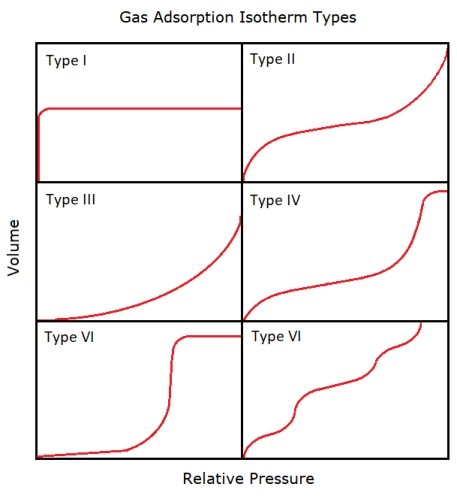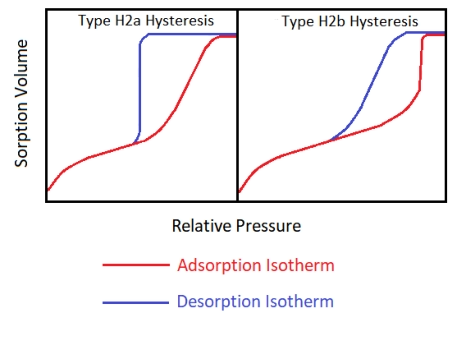Contact Us: 01763 262333
MCA Services
Mercury Porosimetry
Introduction to Mercury Porosimetry
Sample Selection and Handling
Sample Analysis
Gas Sorption
Introduction to Gas Sorption Isotherms
Introduction to BET Surface Area
Krypton vs Nitrogen BET Surface Area
Calculation of BET Surface Area from Gas Adsorption Isotherms
Types of Gas Adsorption and Desorption Isotherms
Interpretation of Gas Adsorption / Desorption Isotherms
Hysteresis in Gas Sorption Isotherms
Gas Pycnometry
How to Measure Absolute / True Density
How to Measure Bulk / Envelope Density
The Difference Between Bulk and Absolute Density
Chemisorption
Introduction to Chemisorption Analysis and Theory
Chemisorption Analysis by Static and Dynamic Methods
Temperature Programmed Analysis
TPx Instrumentation
Examples of Temperature Programmed Reduction
Changing Analytical Conditions of TPx Experiments

Tel: 01763 262333
MCA Services Resources – Discover More
At
MCA
Services
we
always
seek
to
promote
the
physical
characterisation
of
materials
using
a
wide
range
of
analytical
techniques,
that
are
often
used
in
combination
in
order
to
maximise
the
understanding
of
the
porous
nature
of
a
sample
material.
These
analytical
techniques
provide
a
wealth
of
information
which
we
are
always
happy
to
interpret
with
our
clients
and
partners:
identifying
the
most
appropriate
representation
of
sample
properties
in
relation
to
specific
applications.
Sometimes
a
greater
understanding
of
the
analytical
technique
is
required,
including
the
operation
of
instrumentation
and
the
theoretical
foundations
of
measurements
and
data
presentation.
To
assist
this,
our
YouTube
channel
has
a
range
of
presentations
aimed
not
only
at
existing
and
potential
clients
and
partners
but
also
those
seeking
more
information
of
the
techniques.
A
brief summary of the presentations currently available is shown below and we are continuing to add more.
At
MCA
Services
we
are
continually
undertaking
in-house
research
into
the
use
of
our
analytical
techniques
for
the
characterisation
of
materials
applicable
to
a
diverse
range
of
sectors
and
applications.
Our
aim
is
to
discover
the
significance
and
relationships
between
porosity
and
performance, discovering novel characterisation and data interpretation methods to better understand formulation, manufacture and application.
Pharmaceuticals
Porosity
within
solid
dosage
forms
is
known
to
directly
influence
dissolution
and
disintegration
rates,
these
being
critical
parameters
dictating
efficacy.
Furthermore,
the
physical
characteristics
of
powder
blends
and
the
tableting
process
affect
the
nature
of
final
tablet
porosity.
We
have
investigated
these
links
over
many
years
and
continue
to
research
this
both
in-
house
and
with
our
clients
and
partners.
We
are
particularly
proud
of
two
Crest
Gold
Awards
obtained
by
our
work
placement
students
for
projects
investigating
the
relationships
between
porosity and tablet dissolution rate.
Extensive
in-house
research
has
also
been
undertaken
regarding
gas
adsorption
behaviour
of
magnesium
stearate,
an
extremely
common
excipient.
Ultimately
we
show
that
BET
Surface
Area
measurement,
a
commonly
applied
QC
tool,
is
problematic
when
using
nitrogen
and
that
krypton
adsorption
provides
a
more
accurate
and
reliable
method.
The
causes,
effects
and
recommendations
are
available
through
three
peer
reviewed
publications.
DOI:
10.1016/j.ijpharm.2017.08.003
10.1016/j.powtec.2018.10.035
10.1016/j.ijpharm.2019.118522
Battery and Green Technology
The
understanding
of
material
porosity
is
of
fundamental
importance
to
the
function
of
many
applications
within
the
vast
and
growing
sectors
of
renewable
energy,
power
sources
and
green
technology.
At
MCA
Services
we
are
working
to
develop
analytical
and
data
interpretation
methods
to
assist
in
this
understanding.
Our
aims
are
to
characterise
porosity
throughout
the
ranges
of
micro-
meso-
and
macro-pores
with
particular
emphasis
on
material
processing
methods
and
ultimate
performance.
For
this
we
have
successfully
applied
both
porosimetry
and
chemisorption
techniques.
We
are
particularly
proud
of
two
Crest
Gold
Awards
obtained
by
our
work
placement
students
for
projects
investigating
gas
storage
capacity of micro-porous materials.
We
are
currently
investigating
the
application
of
mercury
porosimetry
to
the
characterisation
of
the
porosity
of
electrode
systems
and
gas
sorption
to the characterisation of materials for gas storage and sequestration.
In-house
research
has
been
conducted
into
the
application
of
analytical
techniques to hydrogen storage and can be viewed via the links below.
Characterisation of micro-porous materials
Measurement of heat of adsorption from gas sorption isotherms

MCA Services Resources – Discover More
At
MCA
Services
we
always
seek
to
promote
the
physical
characterisation
of
materials
using
a
wide
range
of
analytical
techniques,
that
are
often
used
in
combination
in
order
to
maximise
the
understanding
of
the
porous
nature
of
a
sample
material.
These
analytical
techniques
provide
a
wealth
of
information
which
we
are
always
happy
to
interpret
with
our
clients
and
partners:
identifying
the
most
appropriate
representation
of
sample
properties
in
relation
to
specific
applications.
Sometimes
a
greater
understanding
of
the
analytical
technique
is
required,
including
the
operation
of
instrumentation
and
the
theoretical
foundations
of
measurements
and
data
presentation.
To
assist
this,
our
YouTube
channel
has
a
range
of
presentations
aimed
not
only
at
existing
and
potential
clients
and
partners
but
also
those
seeking
more
information
of
the
techniques.
A
brief
summary
of
the
presentations
currently
available is shown below and we are continuing to add more.
Mercury Porosimetry
Introduction to Mercury Porosimetry
Sample Selection and Handling
Sample Analysis
Gas Sorption
Introduction to Gas Sorption Isotherms
Introduction to BET Surface Area
Krypton vs Nitrogen BET Surface Area
Calculation of BET Surface Area
Types of Gas Adsorption and Desorption Isotherms
Interpretation of Gas Adsorption / Desorption Isotherms
Hysteresis in Gas Sorption Isotherms
Gas Pycnometry
How to Measure Absolute / True Density
How to Measure Bulk / Envelope Density
The Difference Between Bulk and Absolute Density
Chemisorption
Introduction to Chemisorption Analysis and Theory
Chemisorption Analysis by Static and Dynamic Methods
Temperature Programmed Analysis
TPx Instrumentation
Examples of Temperature Programmed Reduction
Changing Analytical Conditions of TPx Experiments
At
MCA
Services
we
are
continually
undertaking
in-house
research
into
the
use
of
our
analytical
techniques
for
the
characterisation
of
materials
applicable
to
a
diverse
range
of
sectors
and
applications.
Our
aim
is
to
discover
the
significance
and
relationships
between
porosity
and
performance,
discovering
novel
characterisation
and
data
interpretation
methods
to
better
understand formulation, manufacture and application.
Pharmaceuticals
Porosity
within
solid
dosage
forms
is
known
to
directly
influence
dissolution
and
disintegration
rates,
these
being
critical
parameters
dictating
efficacy.
Furthermore,
the
physical
characteristics
of
powder
blends
and
the
tableting
process
affect
the
nature
of
final
tablet
porosity.
We
have
investigated
these
links
over
many
years
and
continue
to
research
this
both
in-
house
and
with
our
clients
and
partners.
We
are
particularly
proud
of
two
Crest
Gold
Awards
obtained
by
our
work
placement
students
for
projects
investigating
the
relationships
between
porosity and tablet dissolution rate.
Extensive
in-house
research
has
also
been
undertaken
regarding
gas
adsorption
behaviour
of
magnesium
stearate,
an
extremely
common
excipient.
Ultimately
we
show
that
BET
Surface
Area
measurement,
a
commonly
applied
QC
tool,
is
problematic
when
using
nitrogen
and
that
krypton
adsorption
provides
a
more
accurate
and
reliable
method.
The
causes,
effects
and
recommendations
are
available
through
three
peer
reviewed
publications.
DOI: 10.1016/j.ijpharm.2017.08.003
10.1016/j.powtec.2018.10.035
10.1016/j.ijpharm.2019.118522
Battery and Green Technology
The
understanding
of
material
porosity
is
of
fundamental
importance
to
the
function
of
many
applications
within
the
vast
and
growing
sectors
of
renewable
energy,
power
sources
and
green
technology.
At
MCA
Services
we
are
working
to
develop
analytical
and
data
interpretation
methods
to
assist
in
this
understanding.
Our
aims
are
to
characterise
porosity
throughout
the
ranges
of
micro-
meso-
and
macro-pores
with
particular
emphasis
on
material
processing
methods
and
ultimate
performance.
For
this
we
have
successfully
applied
both
porosimetry
and
chemisorption
techniques.
We
are
particularly
proud
of
two
Crest
Gold
Awards
obtained
by
our
work
placement
students
for
projects
investigating
gas
storage
capacity
of
micro-
porous materials.
We
are
currently
investigating
the
application
of
mercury
porosimetry
to
the
characterisation
of
the
porosity
of
electrode
systems
and
gas
sorption
to
the
characterisation
of
materials
for
gas storage and sequestration.
In-house
research
has
been
conducted
into
the
application
of
analytical
techniques
to
hydrogen
storage
and
can
be
viewed
via
the links below:
Characterisation of micro-porous materials
Measurement of heat of adsorption from
gas sorption isotherms
















